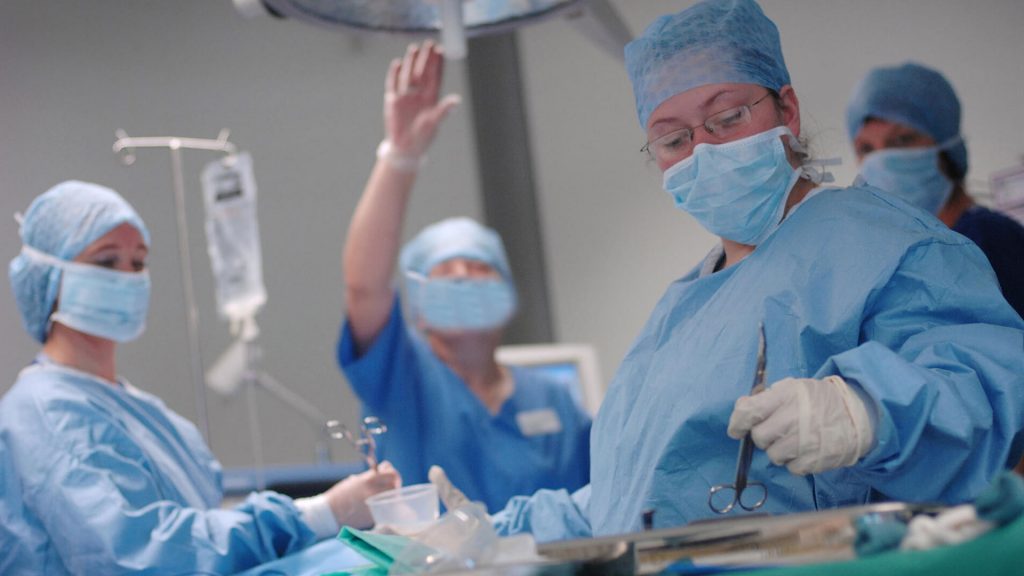HRI research
“The Institute supports a vibrant and thriving community of researchers from a range of disciplines and organisations, with the aim of improving care for patients, practitioners and providers.”
Research themes
We strongly support researcher development from a wide range of disciplines, including support for research council funding applications, such as NIHR fellowships. Please contact [email protected] for further information.

The work of this theme focuses on young people with complex needs, those requiring palliative care and those living with long-term conditions. Teams within this cluster, led by Professor Bernie Carter and Professor Lucy Bray, have a particular interest in pain management, support and information for children and young people undergoing clinical procedures in hospital.
Read about the DETECT study – the first large study of its kind in UK children to evaluate the effectiveness of an electronic physiological surveillance system to help detect clinical deterioration in children.
This theme focuses on the impact of lifestyle factors on health across the life course. This includes:
- the role of the arts, psychotherapy and creative psychotherapy in health, led by Professor Vicky Karkou
- the influence of digital technology and data analytics in enabling good health led by Professor Ella Pereira
- the management of sickness absence, stress and resilience in healthcare settings, led by Professor Paresh Wankhade.
Improving professional practice
Professor Jeremy Brown, Professor John Sandars, and Dr Axel Kaehne lead this research theme. Activities focus on three main areas:
- performance enhancement in health professional development
- the impact and assessment of education in health and other related professions – including theory-driven approaches to the evaluation of education
- the evaluation of improvements to healthcare services.
Research in this theme focuses on health inequalities, delivery of public health interventions and the balance between population and individual perspectives. There is also work on population musculoskeletal health led by Professor Paola Dey, Dr Matt Greig, Dr Ben Langley and Dr Nicola Relph. A group led by Professor Stuart Fairclough, are exploring the impact of detrimental lifestyle-related behaviours, such as physical inactivity, sedentary behaviour and poor sleep, on child and adolescent health, including movement behaviour interventions to promote wellbeing.
In this theme Professor Sally Spencer, Dr Carol Kelly and Dr Andy Levy lead work on systematic reviews and the management of chronic respiratory conditions. Active research topics include self-management strategies in bronchiectasis and emotional health in rehabilitation.
Professor Barbara Jack and Dr Kate Knighting lead work on the management of palliative and end of life care. Active projects include characterisation of respite care services for young people with life-limiting conditions and further development of the Carers Alert Thermometer (CAT).
Research centres and groups
As well as broad interdisciplinary research themes, we also support research centres and groups that have a specific focus. This enables us to nurture and develop collaborative academic clusters with contributions from external colleagues. We support growth through networking, links with other national and regional networks, tailored events, dissemination and a range of other support functions. Further information is below.

Professor Paola Dey and Dr Nicola Relph lead the Promoting Population Musculoskeletal Health Group in collaboration with colleagues in Sports. This group brings together academic staff, within the Faculty of Health, Social Care and Medicine and the Divisions of Sport and Psychology with clinical and research interests in musculoskeletal health. The group builds on ongoing collaborations across sports and public health within the faculties and aims to bring new insights from biomechanics and sports injury to major clinical and public health issues, particularly focusing on public health challenges, such as, promoting physical activity, maintaining mobility and independence in older people and chronic musculoskeletal conditions, such as osteoarthritis. It also draws on members external collaborations within academia, clinical and public health practice and industry.
The centre has developed over the last decade from an active research group that have engaged in interdisciplinary research activities in the form of research projects, publications, events and masterclasses.
Research methodologies celebrate creative and arts-based methods next to verbal accounts of lived experiences and standardised methods of measuring change, allowing for diverse types of evidence to emerge that speak about different aspects of the work to different audiences.
The centre draws expertise from across faculties, championing interdisciplinary research. It has three main strands: (i) research on performance, (ii) community/workplace projects and (iii) clinical research (iii) clinical research
To find out more please visit the research centre for arts and wellbeing webpages.
The mission of the respiratory research centre (RRC) is to develop a centre of excellence for multi-professional respiratory research by drawing on clinical and academic expertise at Edge Hill University (EHU), local healthcare partners across the North West, clinical and academic colleagues around the UK, and multidisciplinary professional and patient organisations and networks. We aim to harness these strengths through research projects with the potential for significant local, national and international impact. Our vision is to push forward the frontiers of health and social care improvement for people with respiratory conditions and support preventative interventions to improve population outcomes by supporting the innovation pipeline.
To achieve these aims we have adopted an inclusive and collaborative approach to the development and support of high quality respiratory research of importance to service users, providers, academics and other key stakeholders.
We welcome enquiries from academics, graduate research students, organisations and individuals interested in the work of the Centre.
To find out more please visit the respiratory research centre webpages.